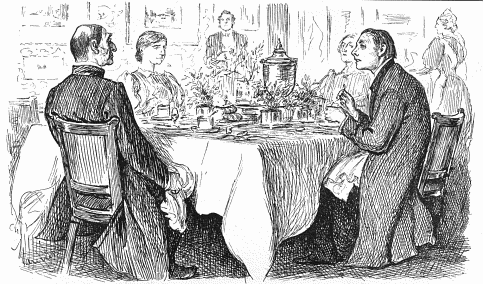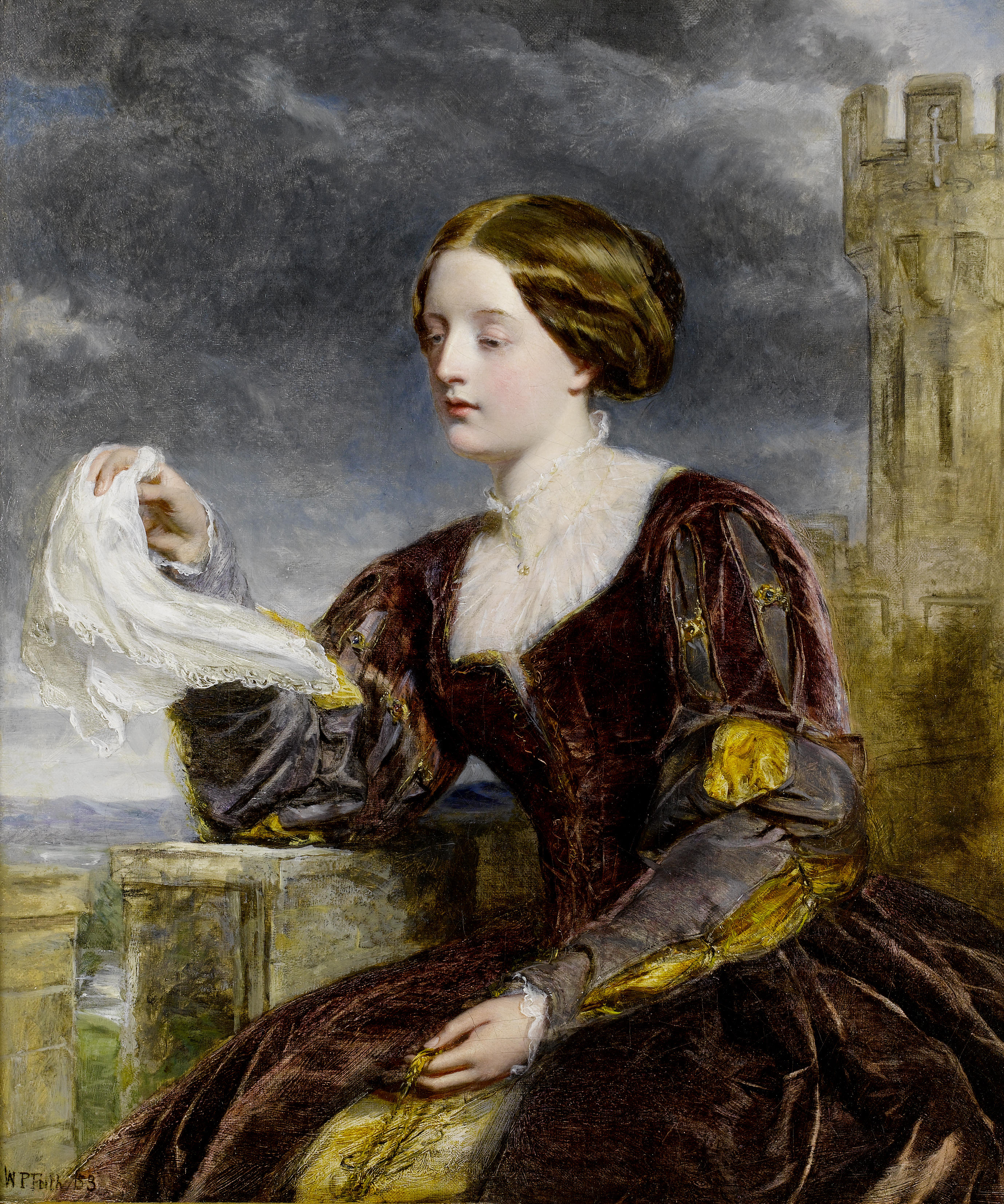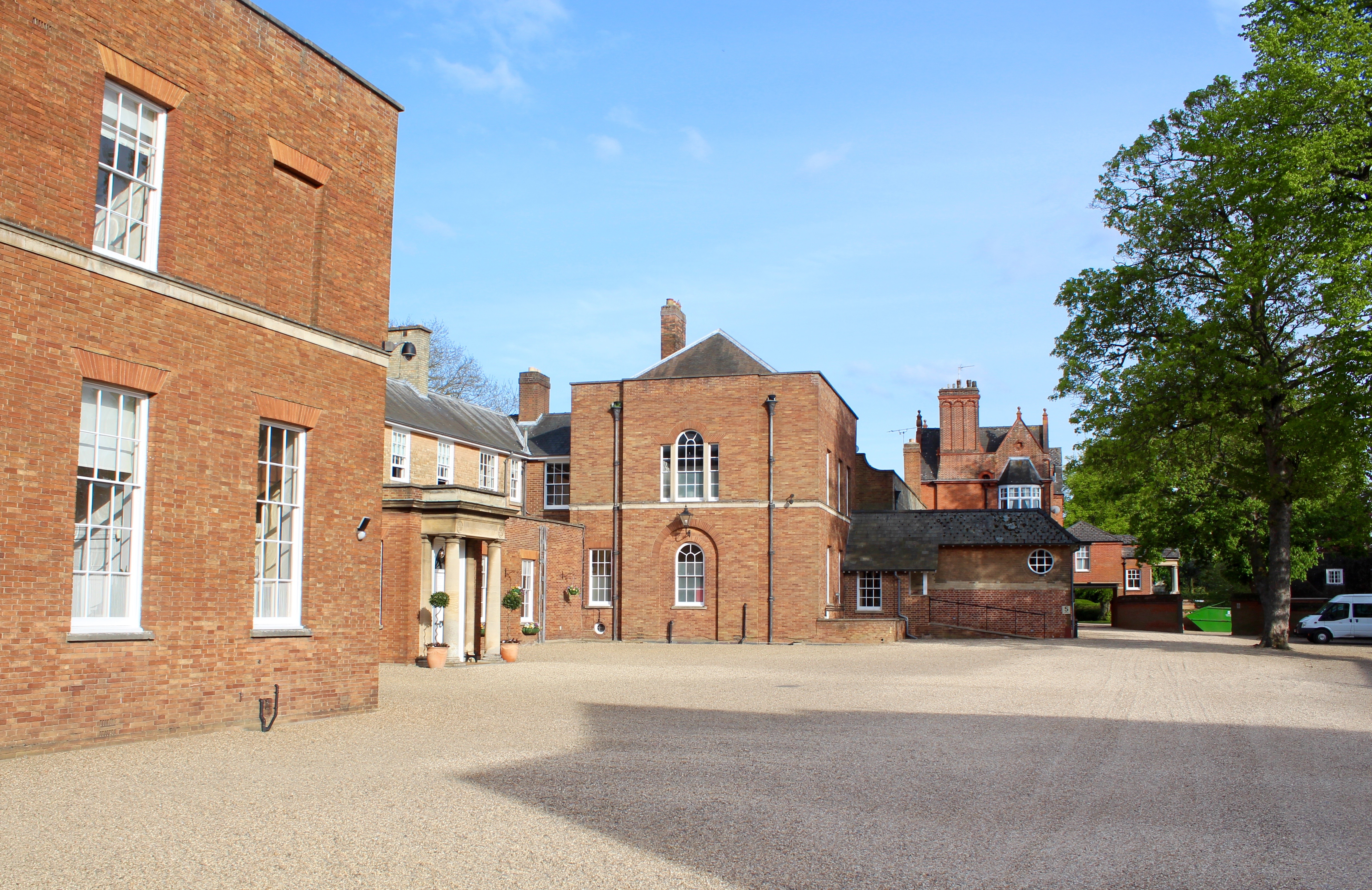|
Claude Duval (opera)
''Claude Duval – or Love and Larceny'' is a comic opera with music by Edward Solomon to a libretto by Henry Pottinger Stephens. The plot is loosely based on supposed events in the life of the seventeenth century highwayman, Claude Duval. The piece was first produced at the Olympic Theatre, London, on 24 August 1881, under the management of Michael Gunn. It ran until the end of October.''The Era'', 27 August 1881, p. 6 From January to March 1882, a D'Oyly Carte Opera Company, D'Oyly Carte touring company played the work in the British provinces. Another D'Oyly Carte company played it in New York in March and April 1882 under Richard D'Oyly Carte's personal supervision, in tandem with Gilbert and Sullivan's ''Patience (opera), Patience''. In New York, a few local references were interpolated into Blood-red Bill's comic song, "William's Sure to Be Right." Roles and early casts *Claude Duval – F. H. Celli *Charles Lorrimore – Sir George Power, 7th Baronet, George Power * ... [...More Info...] [...Related Items...] OR: [Wikipedia] [Google] [Baidu] |
Comic Opera
Comic opera, sometimes known as light opera, is a sung dramatic work of a light or comic nature, usually with a happy ending and often including spoken dialogue. Forms of comic opera first developed in late 17th-century Italy. By the 1730s, a new operatic genre, ''opera buffa'', emerged as an alternative to '' opera seria''. It quickly made its way to France, where it became ''opéra comique'', and eventually, in the following century, French operetta, with Jacques Offenbach as its most accomplished practitioner. The influence of the Italian and French forms spread to other parts of Europe. Many countries developed their own genres of comic opera, incorporating the Italian and French models along with their own musical traditions. Examples include German ''singspiel'', Viennese operetta, Spanish '' zarzuela'', Russian comic opera, English ballad and Savoy opera, North American operetta and musical comedy. Italian ''opera buffa'' In late 17th-century Italy, light-hearted m ... [...More Info...] [...Related Items...] OR: [Wikipedia] [Google] [Baidu] |
Edinburgh
Edinburgh ( ; gd, Dùn Èideann ) is the capital city of Scotland and one of its 32 Council areas of Scotland, council areas. Historically part of the county of Midlothian (interchangeably Edinburghshire before 1921), it is located in Lothian on the southern shore of the Firth of Forth. Edinburgh is Scotland's List of towns and cities in Scotland by population, second-most populous city, after Glasgow, and the List of cities in the United Kingdom, seventh-most populous city in the United Kingdom. Recognised as the capital of Scotland since at least the 15th century, Edinburgh is the seat of the Scottish Government, the Scottish Parliament and the Courts of Scotland, highest courts in Scotland. The city's Holyrood Palace, Palace of Holyroodhouse is the official residence of the Monarchy of the United Kingdom, British monarchy in Scotland. The city has long been a centre of education, particularly in the fields of medicine, Scots law, Scottish law, literature, philosophy, the sc ... [...More Info...] [...Related Items...] OR: [Wikipedia] [Google] [Baidu] |
The New York Times
''The New York Times'' (''the Times'', ''NYT'', or the Gray Lady) is a daily newspaper based in New York City with a worldwide readership reported in 2020 to comprise a declining 840,000 paid print subscribers, and a growing 6 million paid digital subscribers. It also is a producer of popular podcasts such as '' The Daily''. Founded in 1851 by Henry Jarvis Raymond and George Jones, it was initially published by Raymond, Jones & Company. The ''Times'' has won 132 Pulitzer Prizes, the most of any newspaper, and has long been regarded as a national " newspaper of record". For print it is ranked 18th in the world by circulation and 3rd in the U.S. The paper is owned by the New York Times Company, which is publicly traded. It has been governed by the Sulzberger family since 1896, through a dual-class share structure after its shares became publicly traded. A. G. Sulzberger, the paper's publisher and the company's chairman, is the fifth generation of the family to head the pa ... [...More Info...] [...Related Items...] OR: [Wikipedia] [Google] [Baidu] |
The Sporting Times
''The Sporting Times'' (founded 1865, ceased publication 1932) was a weekly British newspaper devoted chiefly to sport, and in particular to horse racing. It was informally known as ''The Pink 'Un'', as it was printed on salmon-coloured paper. History The paper was founded in 1865Andrews, Alexander, ''Chapters in the History of British Journalism'', Chapter XXIIIp. 322online at books.google.co.uk, accessed 2 July 2008 by John Corlett, of Charlton Court, East Sutton, Kent, who was both its editor and its proprietor, and by Dr Joseph Henry Shorthouse. Corlett also wrote a column in the paper called 'Our Note Book' and was associated with it from 1865 to 1913. ''The Sporting Times'' was published on a Saturday, and its competitors included '' The Field'', '' The Sportsman'', the '' Sporting Life'', and ''Bell's Life in London''.Itzkowitz, David C., 'Fair Enterprise or Extravagant Speculation: Investment, Speculation, and Gambling in Victorian England', in ''Victorian Studies'' vo ... [...More Info...] [...Related Items...] OR: [Wikipedia] [Google] [Baidu] |
Fun (magazine)
''Fun'' was a Victorian weekly humorous magazine, first published on 21 September 1861 in competition with ''Punch''. The magazine's first editors were H. J. Byron and Tom Hood. They had many well-known contributors, including Tom Robertson, Ambrose Bierce, G. R. Sims and Clement Scott but the most important contributor to its success in its first decade was W. S. Gilbert, whose Bab Ballads were almost all first published in ''Fun'' between 1861 and 1871, along with a wide range of his articles, drawings and other verses. At a penny an issue ''Fun'' undercut its rival, ''Punch'', and prospered into the 1870s, after which it suffered a gradual decline. It passed through various ownerships under different editors, and ceased publication in 1901, when it was absorbed into a rival comic magazine, ''Sketchy Bits''. History Early years ''Fun'' was founded in 1861 by a London businessman, Charles Maclean, who believed there was scope for a rival to the established comic weekly mag ... [...More Info...] [...Related Items...] OR: [Wikipedia] [Google] [Baidu] |
Punch (magazine)
''Punch, or The London Charivari'' was a British weekly magazine of humour and satire established in 1841 by Henry Mayhew and wood-engraver Ebenezer Landells. Historically, it was most influential in the 1840s and 1850s, when it helped to coin the term " cartoon" in its modern sense as a humorous illustration. From 1850, John Tenniel was the chief cartoon artist at the magazine for over 50 years. After the 1940s, when its circulation peaked, it went into a long decline, closing in 1992. It was revived in 1996, but closed again in 2002. History ''Punch'' was founded on 17 July 1841 by Henry Mayhew and wood-engraver Ebenezer Landells, on an initial investment of £25. It was jointly edited by Mayhew and Mark Lemon. It was subtitled ''The London Charivari'' in homage to Charles Philipon's French satirical humour magazine ''Le Charivari''. Reflecting their satiric and humorous intent, the two editors took for their name and masthead the anarchic glove puppet, Mr. Punch, of Punc ... [...More Info...] [...Related Items...] OR: [Wikipedia] [Google] [Baidu] |
Baronet
A baronet ( or ; abbreviated Bart or Bt) or the female equivalent, a baronetess (, , or ; abbreviation Btss), is the holder of a baronetcy, a hereditary title awarded by the British Crown. The title of baronet is mentioned as early as the 14th century, however in its current usage was created by James VI and I, James I of England in 1611 as a means of raising funds for the crown. A baronetcy is the only British Hereditary title, hereditary honour that is not a peerages in the United Kingdom, peerage, with the exception of the Anglo-Irish Knight of Glin, Black Knights, White Knight (Fitzgibbon family), White Knights, and Knight of Kerry, Green Knights (of whom only the Green Knights are extant). A baronet is addressed as "Sir" (just as is a knight) or "Dame" in the case of a baronetess, but ranks above all knighthoods and damehoods in the Orders of precedence in the United Kingdom, order of precedence, except for the Order of the Garter, the Order of the Thistle, and the dormant ... [...More Info...] [...Related Items...] OR: [Wikipedia] [Google] [Baidu] |
William Powell Frith
William Powell Frith (9 January 1819 – 2 November 1909) was an English painter specialising in genre subjects and panoramic narrative works of life in the Victorian era. He was elected to the Royal Academy in 1853, presenting ''The Sleeping Model'' as his Diploma work. He has been described as the "greatest British painter of the social scene since Hogarth". Early life William Powell Frith was born in Aldfield, near Ripon in the then West Riding of Yorkshire on 9 January 1819. He had originally intended to be an auctioneer. Frith was encouraged to take up art by his father, a hotelier in Harrogate. Frith was great uncle and an advisor to the English school portrait painter Henry Keyworth Raine (1872–1932). He moved to London in 1835 where he began his formal art studies at Sass's Academy in Charlotte Street, before attending the Royal Academy Schools. Frith started his career as a portrait painter and first exhibited at the British Institution in 1838. In the 1840s ... [...More Info...] [...Related Items...] OR: [Wikipedia] [Google] [Baidu] |
Newmarket, Suffolk
Newmarket is a market town and civil parish in the West Suffolk district of Suffolk, England. Located (14 miles) west of Bury St Edmunds and (14 miles) northeast of Cambridge. It is considered the birthplace and global centre of thoroughbred horse racing. It is a major local business cluster, with annual investment rivalling that of the Cambridge Science Park, the other major cluster in the region. It is the largest racehorse training centre in Britain, the largest racehorse breeding centre in the country, home to most major British horseracing institutions, and a key global centre for horse health. Two Classic races, and an additional three British Champions Series races are held at Newmarket every year. The town has had close royal connections since the time of James I, who built a palace there, and was also a base for Charles I, Charles II, and most monarchs since. Elizabeth II visited the town often to see her horses in training. Newmarket has over fifty horse training stabl ... [...More Info...] [...Related Items...] OR: [Wikipedia] [Google] [Baidu] |
The Morning Post
''The Morning Post'' was a conservative daily newspaper published in London from 1772 to 1937, when it was acquired by ''The Daily Telegraph''. History The paper was founded by John Bell. According to historian Robert Darnton, ''The Morning Post'' scandal sheet consisted of paragraph-long news snippets, much of it false. Its original editor, the Reverend Sir Henry Bate Dudley, earned himself nicknames such as "Reverend Bruiser" or "The Fighting Parson", and was soon replaced by an even more vitriolic editor, Reverend William Jackson, also known as "Dr. Viper". Originally a Whig paper, it was purchased by Daniel Stuart in 1795, who made it into a moderate Tory organ. A number of well-known writers contributed, including Samuel Taylor Coleridge, Charles Lamb, James Mackintosh, Robert Southey, and William Wordsworth. In the seven years of Stuart's proprietorship, the paper's circulation rose from 350 to over 4,000. From 1803 until his death in 1833, the owner and editor of the ... [...More Info...] [...Related Items...] OR: [Wikipedia] [Google] [Baidu] |
The Era (newspaper)
''The Era'' was a British weekly paper, published from 1838 to 1939. Originally a general newspaper, it became noted for its sports coverage, and later for its theatrical content. History ''The Era'' was established in 1838 by a body of shareholders consisting of licensed victuallers and other people connected with their trade. The journal was intended to be a weekly organ of the public-house interest, just as the ''Morning Advertiser'' was then its daily organ. In the first two or three years of its existence, its political stance was broadly Liberal. Its first editor, Leitch Ritchie, proved too liberal for his board of directors, and in addition to editorial clashes, the paper was a commercial failure. Ritchie was succeeded by Frederick Ledger, who became sole proprietor as well as editor. He edited the paper for more than thirty years, gradually changing its politics from Liberalism to moderate Conservatism. Politics, however, ceased to be a major concern of ''The Era''. Its ... [...More Info...] [...Related Items...] OR: [Wikipedia] [Google] [Baidu] |
William Powell Frith Claude Duval
William is a masculine given name of Norman French origin.Hanks, Hardcastle and Hodges, ''Oxford Dictionary of First Names'', Oxford University Press, 2nd edition, , p. 276. It became very popular in the English language after the Norman conquest of England in 1066,All Things William"Meaning & Origin of the Name"/ref> and remained so throughout the Middle Ages and into the modern era. It is sometimes abbreviated "Wm." Shortened familiar versions in English include Will, Wills, Willy, Willie, Liam, Bill, and Billy. A common Irish form is Liam. Scottish diminutives include Wull, Willie or Wullie (as in Oor Wullie or the play ''Douglas''). Female forms are Willa, Willemina, Wilma and Wilhelmina. Etymology William is related to the German given name ''Wilhelm''. Both ultimately descend from Proto-Germanic ''*Wiljahelmaz'', with a direct cognate also in the Old Norse name ''Vilhjalmr'' and a West Germanic borrowing into Medieval Latin ''Willelmus''. The Proto-Germanic name is a ... [...More Info...] [...Related Items...] OR: [Wikipedia] [Google] [Baidu] |



.png)




